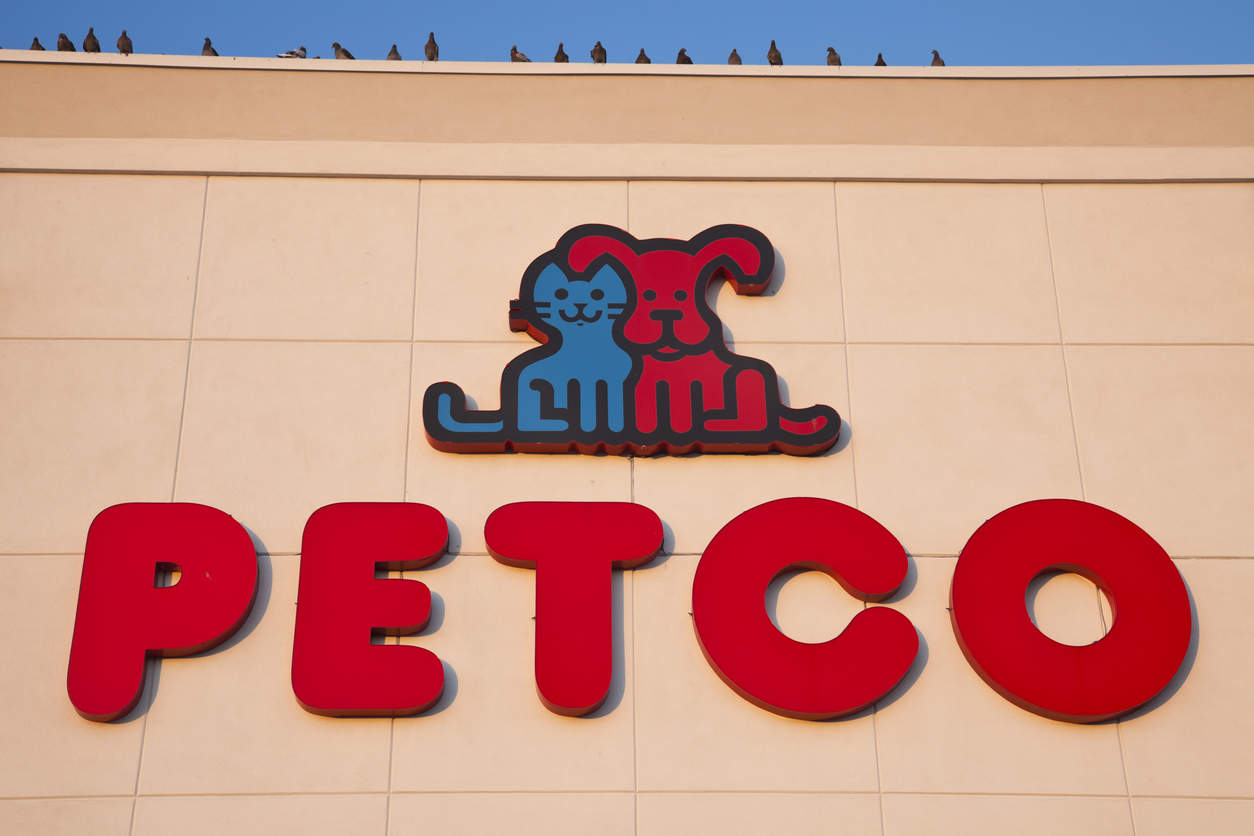
iStock.com/benkrut
What Should Petco’s Next CEO Focus On?
Last week, Petco’s CEO, chairman, and board member Ron Coughlin stepped down amid downward trends in pet adoptions and as the pet category overall has proved less resistant to macroeconomic pressures than predicted.
Coughlin, who took over as CEO in 2018, repositioned the chain around health and wellness. It became the first national specialty retailer to stop selling dog and cat food and treats with artificial ingredients, removed electronic shock collars from selling floors, and committed to having half of its products be “sustainable” by the end of 2025. The chain established 282 in-store hospitals by the end of 2023, and its Vital Care annual insurance program now counts over 720,000 members.
In 2020, it changed its corporate name to “Petco, The Health + Wellness Co.” and went public the following year as results were boosted by the pet adoption boom during the pandemic.
Adoptions have slowed and animal shelter populations have steadily grown since 2021, with the shift being attributed to inflationary pressures. With inflation on pet food last summer soaring, pet spending also retreated, impacting Petco’s results.
To improve traffic, the company has reintroduced a number of value-oriented pet brands — including Friskies, Pedigree, Purina Beneful, Temptations, and Milkbone — along with lower price points.
Mike Mohan, former president and COO of Best Buy and Petco’s lead independent director since July 2021, was appointed interim CEO as a search for a permanent CEO gets underway. Coughlin will stay on as an advisor through the transition.
On the retailer’s fourth-quarter analyst call, Mohan described Petco as “an iconic brand in the pet care category,” positioned for growth around humanization and premiumization trends. He said, “Petco has a combination of differentiated products, a commitment to veterinary, and other services, and an omni-channel model that taken together is unmatched in our industry.”
However, he acknowledged Petco made some missteps, including failing to adapt to changes in consumer preferences that led to market share losses and eroding profitability.
“First, we did not anticipate the magnitude of the shift to value in both our consumables and discretionary business. And second, we did not expect customers to pull back as quickly as they have and for this duration when spending on discretionary items,” Mohan said. “As a result, our in-store and omni-channel offering was not appropriately aligned with our customers’ needs.”
In-store vet hospital additions will be slowed to protect free cash flow this year, but hospitals and mobile clinics continue to perform well, and the overall veterinarian services push remains a priority. Beyond offering “more balanced price points” across products, near-term priorities include inventory management, associate training, improving marketing, and aligning in-store and omni-channel approaches.
Mohan said, “We’ll act purposely, to connect with pet parents, to drive share gains, and grow margins through improved baskets, and a quality of sales in a meaningful, and substantial way.”
Discussion Questions
Should Petco continue, tweak, or abandon its focus on health and wellness complemented by its recent reintroduction of value-based offerings?
How should Petco be positioning itself against competitors like PetSmart, Chewy, and Walmart?
